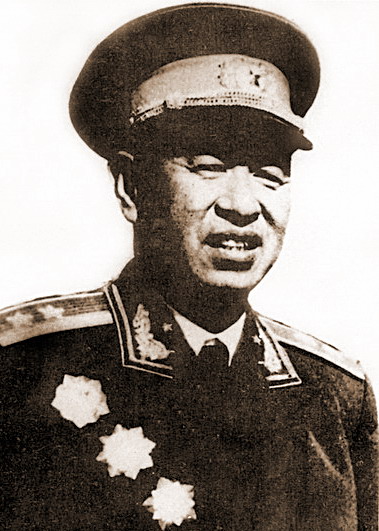Cai Lihuai

Cao Lihuai (1909-1998) was born in Zixing of Hunan Province. In January of the year 1928, he participated in the Southern Hunan Uprising and joined the Chinese Communist Party in the same year. He involved himself in the famous Jinggang Mountain Fighting and the Long March. During the Anti-Japanese War, he held the post of the chief of staff in the stay-behind corps which belonged to the Eighth Route Army (led by the CCP during the war of Resistance against Japan) and then the post of the chief of staff in Hebei-Shangdong-Henan Military Region. During the Liberation War, he held the post of Garrison Commander in Changchun and the post of Army Corps Commander of the 47th Corps. In this period, he engaged in the Liaoning-Shenyang War, Beiping-Tianjin War and the Battle to exterminate the bandits in Western Hunan Province. In 1951, he involved himself in the war to resist America Aggression and aided Korea as the Army Corps Commander of the 47th Corps Chinese Volunteer Army. In 1952, he returned from the battle and sequentially held the posts of Air Force commander of the South China Military Region and the Guangzhou Military Region, and the Vice Commander of the Air Force. In 1962, he held the concurrent post of the director of the Aviation Products Committee, during which time, he engaged in the development and research work of aviation products and missiles. In 1955, he was conferred the Second-Lieutenant military rank and awarded the first-rank Bayi Medal, the first-rank Independence and Freedom Medal and the first Liberation Medal. He was also the member of the 9th, 10th and 11th Central Committee of the CPC. He was chosen as the member of Chinese Communist Central Advisory Committee in both 1982 and 1987.




